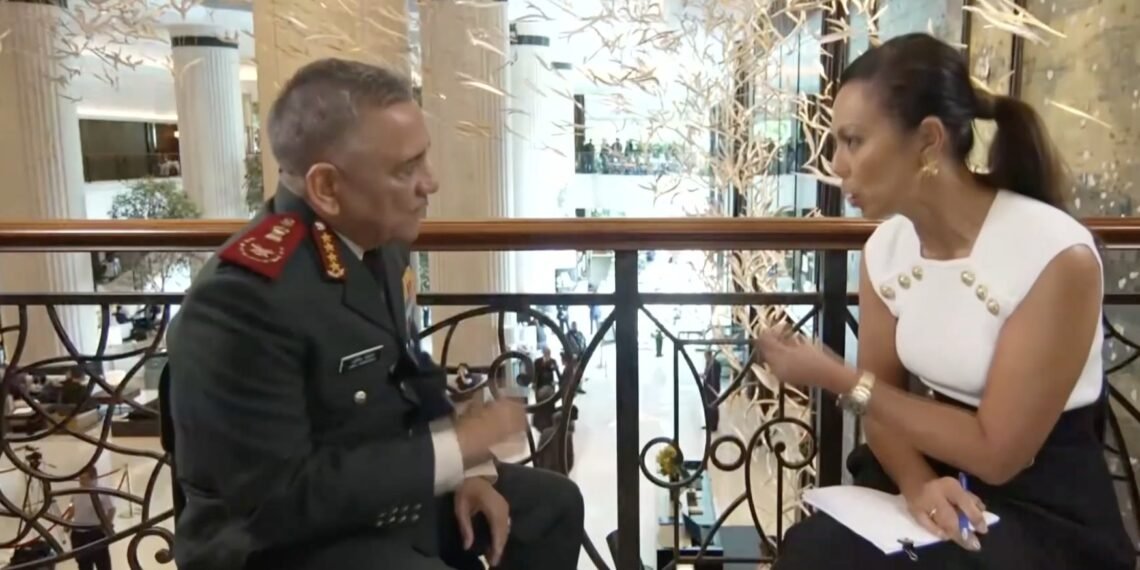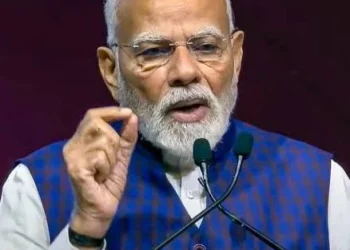With opposition pressure mounting, the Modi government faces scrutiny over its silence and the strategic ambiguity surrounding India’s recent aerial losses during the “Operation Sindoor.”
BY Navin Upadhyay
New Delhi, June 1, 2025 – The admission by Chief of Defence Staff (CDS) General Anil Chauhan in a Singapore interview, confirming the loss of Indian fighter jets during recent skirmishes with Pakistan, continues to roil India’s political landscape. Following the initial outcry from Congress President Mallikarjun Kharge and General Secretary Jairam Ramesh, the revelation has sparked a broader debate, raising fresh questions about transparency, defense preparedness, and the Centre’s handling of national security. As the opposition intensifies its demand for accountability, analysts and political observers are dissecting the implications of the CDS’s remarks, with seven critical questions dominating the discourse.
The Congress’s swift reaction, demanding a special Parliament session and an independent review akin to the 1999 Kargil Review Committee, has set the stage for a heated confrontation. Kharge’s accusation that the Modi government “misled the nation” and Ramesh’s critique of the government’s reliance on a foreign interview to reveal sensitive details have resonated with opposition allies. However, the BJP has countered, accusing Congress of “amplifying anti-India narratives” by echoing Pakistan’s claims about downed jets. This polarized rhetoric has only amplified public scrutiny, with analysts questioning why critical details about Operation Sindoor remain shrouded in ambiguity.
READ: From Icon to Exile: Sharmila’s Silence in Manipur’s Dark Hour
In the wake of the remarks made by the Chief of Defence Staff (CDS) in Singapore in an interview, there are some very important questions which need to be asked.
These can only be asked if a Special Session of the Parliament is immediately convened.
The Modi Govt has misled the…
— Mallikarjun Kharge (@kharge) May 31, 2025
The CDS’s admission, made during the Shangri-La Dialogue to Bloomberg, acknowledged losses during precision strikes launched in response to the April 22 Pahalgam terror attack. While General Chauhan refuted Pakistan’s claim of downing six jets as “exaggerated,” he confirmed that tactical errors led to losses, which were quickly rectified. This has shifted focus to the government’s reticence and the strategic implications of the conflict, raising the following unresolved questions:
- How Many Jets Were Downed or Damaged? The absence of specific figures from the CDS or the government has fueled speculation. While Air Marshal AK Bharti’s earlier statement that “losses are a part of combat” acknowledged some damage, the lack of clarity has led to accusations of a cover-up. Analysts argue that disclosing the number of jets lost—whether one or several—would demonstrate transparency without compromising national security.
- Were Rafale Jets Among the Losses? Allegations that Rafale jets, acquired from France in a high-profile deal, were downed have gained traction, particularly after Congress leader Uttam Kumar Reddy and BJP’s Subramanian Swamy raised concerns. Swamy’s claim that the Rafales were “not up to the mark” has sparked debate about their performance in combat. Without official confirmation, speculation about the Rafale’s role risks undermining public confidence in India’s defense acquisitions.
- Is France Seeking Disclosure on Rafale Damage? No credible evidence suggests France is pressing India for details about potential Rafale losses. However, the controversy surrounding the jets, coupled with Swamy’s allegations of irregularities in the Rafale deal, has raised questions about whether France might seek clarity to protect the aircraft’s reputation. Defense analysts note that any damage to Rafales could prompt diplomatic discussions, given the strategic partnership between New Delhi and Paris.
- Why the Lack of Full Disclosure? The Modi government’s reluctance to provide a detailed account of Air Force losses has drawn sharp criticism. Political observers argue that the secrecy may stem from electoral considerations, as admitting losses could dent the BJP’s narrative of military strength. The opposition’s charge that the government is hiding behind the armed forces’ bravery underscores the need for a parliamentary debate to restore public trust.
- Why Singapore as the Disclosure Venue? The decision to reveal jet losses in a foreign interview rather than through India’s defense establishment or Parliament has baffled observers. Some speculate that the CDS’s remarks were intended for an international audience to counter Pakistan’s narrative, while others see it as an attempt to control the domestic fallout. The lack of prior communication to political parties or the public has fueled accusations of opacity.
- Why were Media Houses Targeted for Reporting Losses? Analysts suggest that censorship or punitive measures against the press for reporting such losses signalled an attempt to manage the narrative, raising concerns about freedom of expression in matters of national security.
- What Drives the Government’s Secrecy? The government’s silence, contrasted with Foreign Secretary Vikram Misri’s announcement of a ceasefire on May 10, has led to speculation about external pressures, including U.S. President Donald Trump’s claim of brokering the truce. Kharge’s assertion that this undermines the 1972 Shimla Agreement highlights the need for clarity on the ceasefire’s terms. Analysts argue that the government’s secrecy may reflect a broader strategy to avoid scrutiny of defense lapses or diplomatic compromises.
Strategic and Political Implications
The CDS’s disclosure has exposed vulnerabilities in India’s defense narrative, with analysts warning that prolonged secrecy could erode public confidence in the military and government. The opposition’s call for an independent probe, modeled on the Kargil Review Committee, reflects concerns about systemic issues in defense planning and execution. The controversy also risks straining India’s strategic partnerships, particularly with France, if Rafale-related questions remain unanswered.
Why should international media report this first? Why were these facts first not given to India’s citizens, to Parliament and to peoples representatives? https://t.co/JKUnjjpIXT
— Sagarika Ghose (@sagarikaghose) May 31, 2025
Public sentiment, amplified on X, reflects a mix of pride in the Indian Air Force’s resilience and frustration with the government’s lack of transparency. Posts praising the IAF’s courage are juxtaposed with demands for accountability, with hashtags like #OperationSindoor and #DefenceTransparency trending.
 READ: A Warm Homecoming: Kashmiri Muslims Welcome Pandits to Mela
READ: A Warm Homecoming: Kashmiri Muslims Welcome Pandits to Mela
As the political storm intensifies, the Modi government faces mounting pressure to address these questions in Parliament or through a public statement. Defense analysts suggest that a transparent report on Operation Sindoor, including losses and lessons learned, could defuse tensions and demonstrate accountability.
The CDS’s admission, while a rare moment of candor, has opened a Pandora’s box of questions about India’s defense strategy and political accountability. With the nation watching, the government’s next steps will determine whether it can clear the “fog of war” or risk further erosion of public trust.














